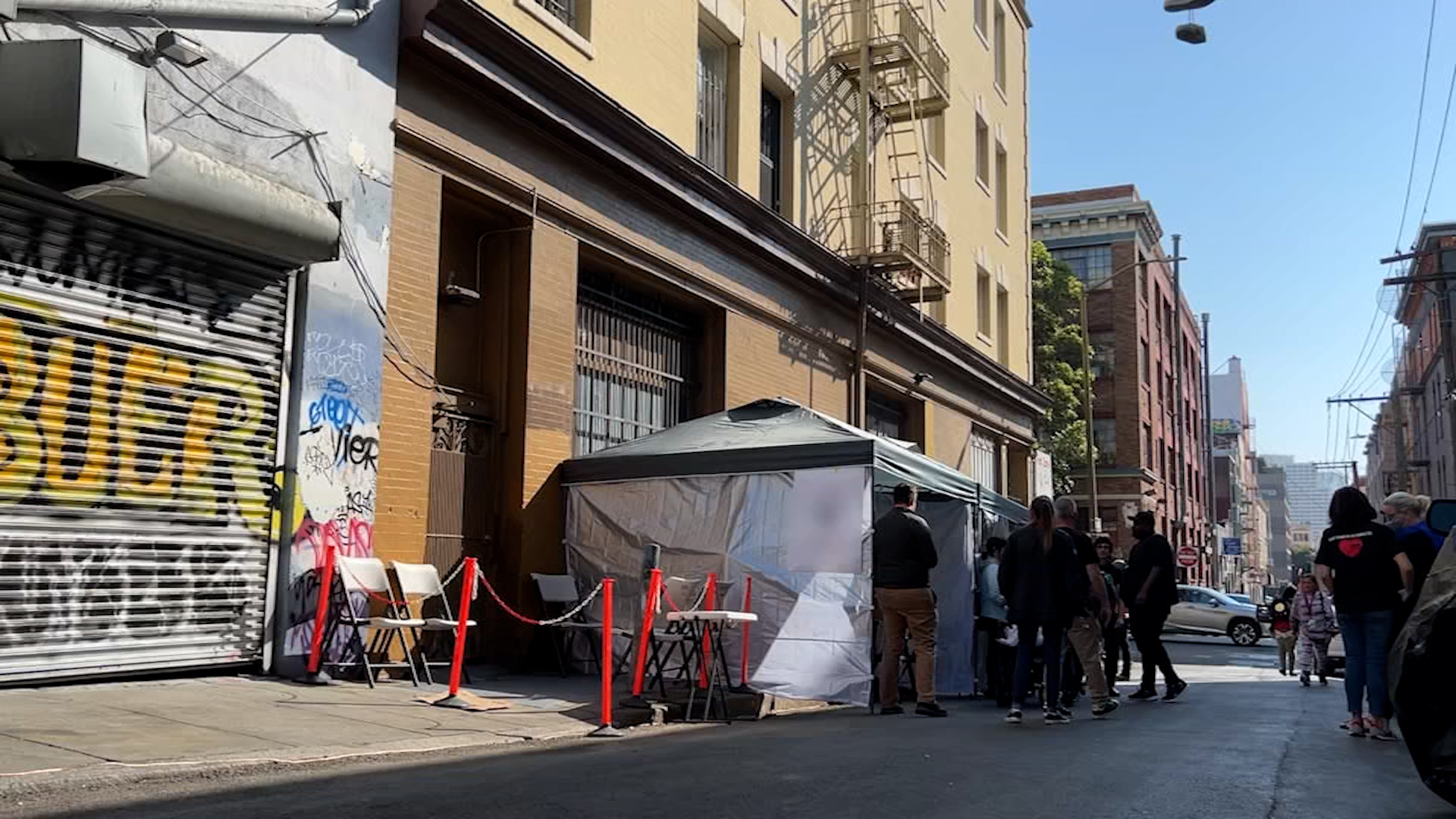A group of San Francisco activists erected tents in a hot spot for drug use Thursday and invited people in the area to use drugs under their supervision.
The group, which gathered in and around two canopy tents on the corner of Willow and Polk streets in the Tenderloin neighborhood, consisted of several local nonprofit workers who said they took the day off to pursue the project in honor of International Overdose Awareness Day.
Volunteers at the site, which resembled what’s called a safe-consumption facility, said they reversed two potentially fatal overdoses in the vicinity of the tents before noon.
“They didn’t have Narcan and came very close to dying,” said Lydia Bransten, an organizer of the event. “This work is about building trusting relationships. … When they’re ready to find another kind of intervention, they’ll know who to go to.”
Bransten said the group, which donned matching shirts that read “Concerned Public Response” on the front and “Can’t Stand By As People Die” on the back, contributed money from their own pockets to fund the demonstration.
The city operated a safe-consumption site called the Tenderloin Center for 11 months last year, counting 333 overdose reversals during its tenure, according to a city dashboard. But that site closed amid concerns about its impact on the neighborhood, its $22 million price tag and an apparent failure to connect many clients to treatment. Plans to create replacement facilities have stalled over legal concerns.
Fatal overdoses are surging to historic highs with 473 people losing their lives to drugs in the first seven months of this year. Safe-consumption sites have long served as a flashpoint in the debate over how to abate the overdose crisis plaguing cities across the country.
Multiple Demonstrations
In honor of International Overdose Awareness Day, activists on all sides of the policy debate staged protests, demonstrations and memorials around the city.
On Wednesday night, a group called Mothers Against Drug Addiction and Deaths covered the sidewalks in front of City Hall with names of overdose victims. By Thursday morning, the Department of Public Works had washed the names from the sidewalk at the request of the Sheriff’s Department because it was considered graffiti, according to a statement from the Department of Public Works.
“The names of opioid victims are not erased from our memories, but are the motivation for us to continue this work,” the Sheriff’s Department and the Department of Public Works said in a joint statement.
Gina McDonald, a member of Mothers Against Drug Addiction and Deaths, pointed to a public document that states temporary mediums such as chalk aren’t considered graffiti. The group spent seven hours etching the names on the sidewalk Wednesday night.
“Every day, people walk around San Francisco and have to dodge human excrement, dirty needles, pipes and foil,” McDonald said. “The fact that they think our memorial was more offending than those items is flabbergasting.”
Another coalition of nonprofits and advocacy groups staged a rally in front of City Hall on Thursday afternoon to criticize the war on drugs and call for more safe-consumption sites.
At the renegade safe-consumption site, The Standard witnessed several people using drugs under the tent while many others lined up to obtain fresh materials to consume their drugs with—a measure taken to combat the spread of diseases.
A police squad car slowly drove by the site shortly after noon, but no enforcement action was taken.
A man named Phillip Torres, who lives on a nearby street and said he had overdosed 15 times, said he was grateful for the services.
“There’d be a lot more deaths if we didn’t have resources like this. There’s no telling what would happen,” Torres said. “If they got such a problem with us being on the streets, they should put us inside.”
